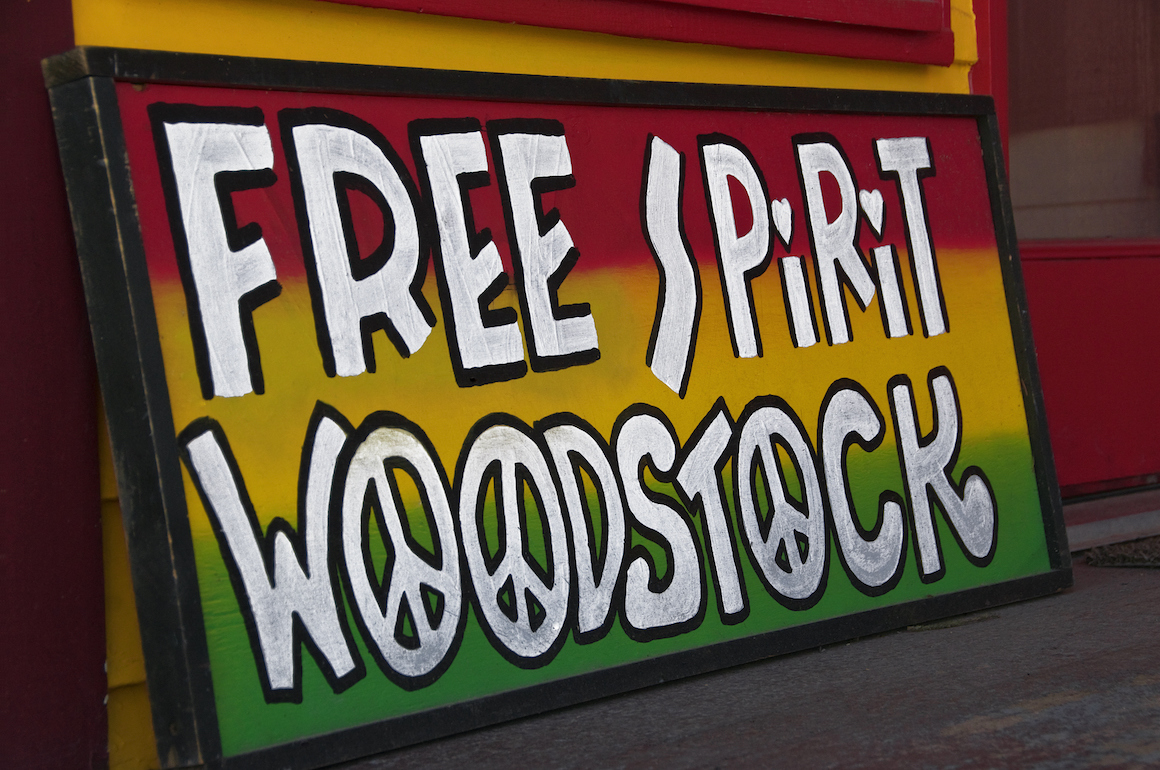
Some 55 years ago starting August 15, a small community in upstate New York hosted three days of peace, love and music Woodstock.To mark the anniversary, Senior Planet revisits a 2019 interview with someone who was there and literally wrote the book on it.When 500,000 young people gathered in upstate New York on an August weekend in1969, for three days of peace and music, no one expected wed be talking about this concert50 years later.Mike Greenblatt, 68, sat front and center at Woodstock, driving up fromNew Jersey.
He took the brown acid and slept on the ground without a tent or a sleeping bag.A music writer for over five decades, Greenblatt brings encyclopedic knowledgeto his first book, Woodstock 50th Anniversary: Back to Yasgurs Farm (Krause Publications).Every act and its set is analyzed and the book is packed with photos.In this personal and definitive account, Greenblatt reveals what happened before, during and after the legendary concert:SP: Whats it like to publish your first book at 68?Greenblatt: Im thrilled.
Im ready for my 15 minutes.Its gonna be so much fun this summer.Pat Prince, my editor at Goldmine magazine, (which has a book division), loved my Woodstock stories and encouraged me to write the book.SP: How long did it take to write and research?Greenblatt: A little over a year.SP: Whats it like to still be writing about music at 68? Greenblatt: Since 1974, all Ive done in my life is write about music or tell people about it as a publicist or journalist.
Music is my muse and my salvation.One of the themes of my Woodstock book is music as salvation.SP: Why is Woodstock the most important concert of that era? And its not just important to baby boomers.
Younger people are very impressed that I was there.it confers status.Greenblatt: It was the only time in recorded history that 500,000 people gathered in one place at one time with not enough food or water or bathrooms and no police force.It was the second largest city in the state at the time.
And there was not one reported incident of violence.The peace and love mantra that hippies were espousing from day one we proved it at Woodstock.We fed each other, kept each other high, kept each other warm and laughing.
The real show wasnt on the stage.It was us!SP: What are your thoughts about the best performances?Greenblatt: Sly and the Family Stone rocked my world.I loved the Band, Johnny Winter, and Mountain.
Of course Santana made their legend there.And Country Joe leading the FISH cheer represented freedom the epitome of unrestrained freedom.I loved the vocals and harmonies of The Band and they all kept switching instruments.SP: How did you remember so much? Did you take notes right after the concert? I was there too and dont remember as many details as you!Greenblatt: No notes.
I was not a journalist back then.Certain things stand out like they happened yesterday.Sunday sticks out the most in my memory.SP: Woodstock couldve been a disaster.
What explains the fact that everyone got along helping each other- and no violence?Greenblatt: It was a cosmic accident, totally inexplicable.I cant explain why everyone stayed calm.But part of the reason was the avuncular presence of John Morris (from the Fillmore East) on the stage.
He was the adult in the room.He was so good, so responsible with a constant stream of words.He kept reminding us the whole world is watching.SP: When researching the book, did you find out anything interesting that you didnt know before? I loved the detail that Richie Havens ashes were scattered over the site.
Greenblatt: I did not know that Governor Rockefeller wanted to send in the troops, and John Morris convinced him not to.Could you imagine what might have happened? I also did not realize there were underground cables leading to the stage.By Sunday, so much soil had been washed away by the monsoon, the wires were perilously close to where we were sitting.
The promoters feared people could be electrocuted.The long break was not just because of the rain.They had to reconfigure and move power to other cables.SP: How would you say the Woodstock generation is aging, especially the musicians?Greenblatt: Its a different story for each person.
We started out left wing, anti war but some have gone to the dark side.Others have kept the ideals that Joan Baez so eloquently communicated on the first night.The musicians themselves are tethered to that era, its part of their DNA.
There is definitely a thread from August 1969 until today.SP: What does aging with attitude mean to you?Greenblatt: I may be 68 but my wife says Im still 18.Im the same rebellious pot smoking hippiethat I was back then.YOUR TURNWere you at Woodstock? Let us know your favorite band and moment in the comments!Kate Walter is the author of two memoirs:Behind the Mask: Living Alone in the Epicenter;andLookingfor a Kiss: A Chronicle of Downtown Heartbreak and Healing.Her essays and opinion pieces have appeared inThe New York Times, Newsday,New York Daily News, AM-NY, Next Avenue, The Advocate,The Village Sun and other outlets.She taught writing at CUNY and NYU for three decades and now works as a writing coach.Photo of Kate Walter by Su ZenTop Photo: Marie Hickman via Getty Images
Disclaimer: This story is auto-aggregated by a computer program and has not been created or edited by Senior Savings Deals.
Publisher: Senior Planet ( Read More )
Publisher: Senior Planet ( Read More )

